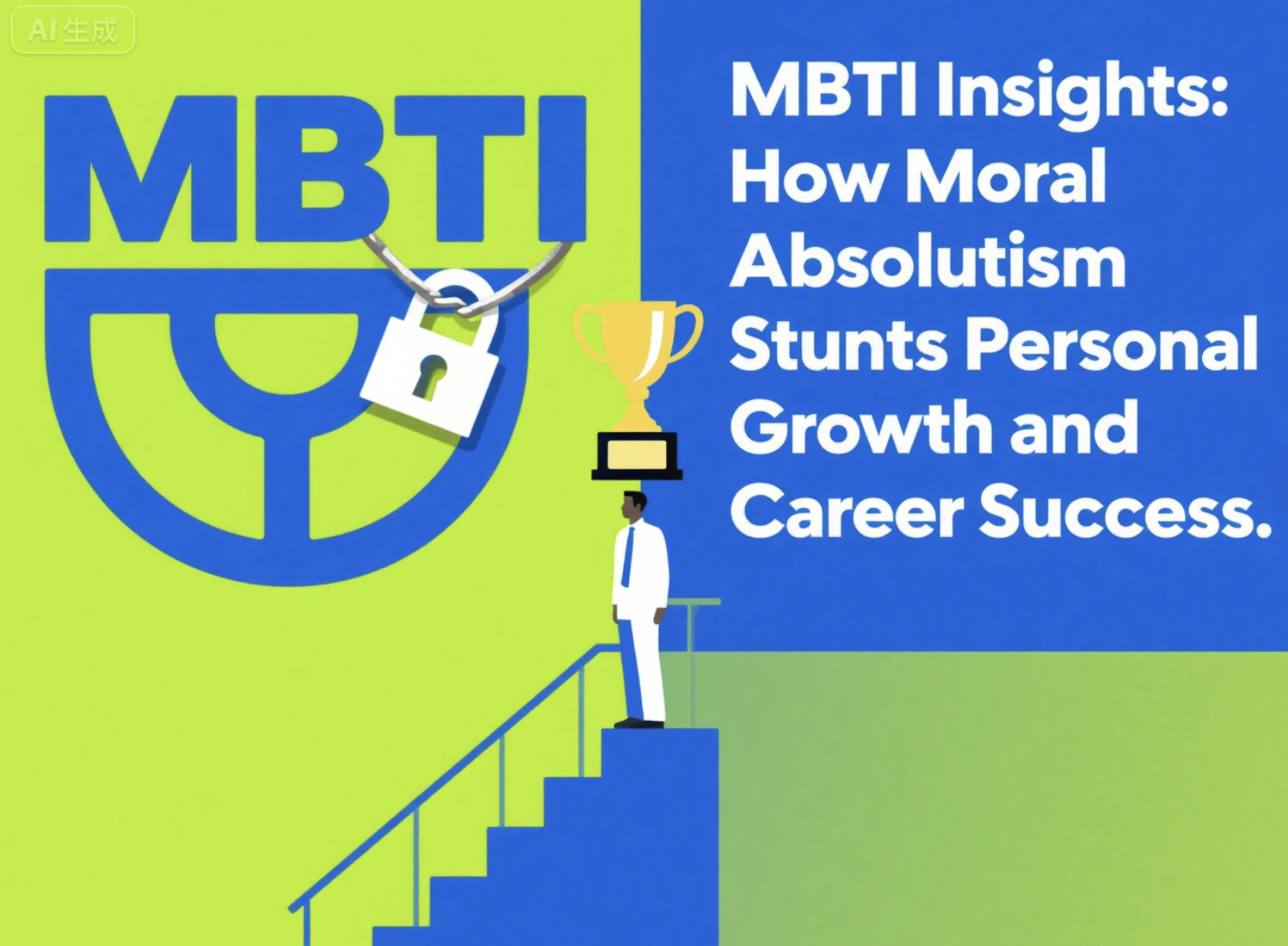MBTI Insights: How Moral Absolutism Stunts Personal Growth and Career Success

The internet has undergone a radical transformation over the past three decades, but one of the most striking shifts isn’t technological—it’s psychological. While the average user’s critical thinking skills have declined, collective moral posturing has reached unprecedented heights. As an MBTI and career development platform, ProMbti recognizes how this phenomenon stifles personal growth, emotional maturity, and professional adaptability.
The Rise of Moral Absolutism
Two phrases dominate online discourse today: “How is this allowed?” and “Why isn’t anyone stopping this?” These questions often trigger swift, disproportionate consequences, reinforcing a culture of binary judgment. This trend reflects an immature cognitive framework—one that prioritizes moral certainty over nuanced understanding.
From an MBTI perspective, such rigidity aligns with underdeveloped Fe (Extroverted Feeling) or Fi (Introverted Feeling) functions. Healthy emotional processing requires balancing empathy with critical analysis. Yet, many default to oversimplified moral dichotomies (good vs. evil) to navigate complexity. This black-and-white thinking mirrors adolescent psychology, where identity formation relies on external validation rather than introspection.
The Hidden Cost of Moral Vigilantism
Public shaming campaigns—like those targeting infidelity—illustrate this dysfunction. While celebrities face career ruin for personal misconduct, powerful figures (e.g., CEOs with multiple affairs) often evade scrutiny. The disparity reveals a harsh truth: moral enforcement disproportionately targets those lacking social or institutional protection.
For professionals, this poses a career risk. A single misstep—a misunderstood comment, an offhand joke—can trigger irreversible reputational damage. Unlike elites, average individuals lack the resources to rebound. MBTI theory emphasizes adaptability (a hallmark of Perceiving types) as critical for resilience. Yet, moral absolutism fosters a punitive environment where growth is impossible.
MBTI and Emotional Maturity in the Workplace
Thriving in modern careers demands Emotional Intelligence (EQ)—a skill undermined by reactive moralism. Consider:
Judging (J) Types: May struggle with flexibility when rigid moral standards conflict with workplace realities.
Perceiving (P) Types: Often excel in dynamic environments but risk alienation in overly punitive cultures.
Organizations valuing psychological safety (where employees learn from mistakes) outperform rigid, blame-driven ones. Google’s Project Aristotle highlights this: teams with high EQ and low judgmentalism achieve greater innovation.Breaking the Cycle: From Judgment to Growth
Develop Cognitive Agility: Use MBTI insights to identify blind spots (e.g., over-reliance on Fe/Fi without Ti/Te balance).
Practice Contextual Thinking: Before condemning behavior, ask: What systemic factors or personality differences might explain this?
Foster Professional Resilience: Build Tertiary/Inferior Functions (e.g., INTJs cultivating Fi for empathy).
Conclusion: The Path to Authentic Adulthood
Moral absolutism offers illusory control but erodes the complexity required for true maturity. For career success, embrace MBTI-driven self-awareness: understand others’ motivations, navigate gray areas, and prioritize growth over condemnation. The internet’s “permanent adolescence” needn’t define your professional journey.
By integrating MBTI principles, individuals and organizations can cultivate environments where understanding replaces judgment—and where careers flourish through empathy, not dogma.
ProMbti helps you leverage Personality Insights for career success. Explore our tools to build emotional agility and thrive in any professional setting.




